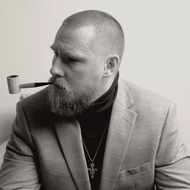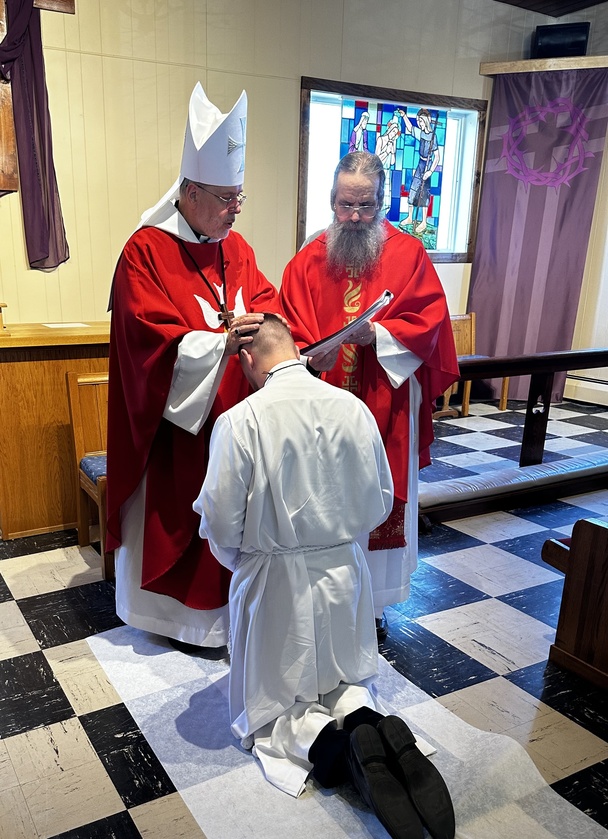
The relationship between faith and reason is an interesting one, especially with the modern dichotomy often placed between them. Not so in days past. In the pre-modern era, faith and reason were two sides of the same coin, in a real sense supporting one another:
A) Faith in God establishes reason.
B) It is therefore reasonable to have faith in God.
This is a pretty simplified and imprecise way to describe the way the early Christians thought about these things, but it seems quite clear to me that the ancient Christians never saw themselves as those who had to defend one over another. Both were valuable and neither one conflicted with the other. Thus, it seems that the kind of Kantian thinking that has predominated these conversations dramatically shifted the way in which both faith and reason were understood. This is quite an unfortunate reality. As Oliphint demonstrated in our reading this week, and I as I alluded to earlier, true knowledge is linked intrinsically to faith.
Kant and those who follow similar thinking have sought to place metaphysical (abstract "faith-based" study) outside discussions of knowledge, seeking to differentiate between knowledge and faith on that which can be evidentially or experientially shown and that which can only be propositional and abstract, existing apart from evidence, and therefore apart from knowledge.
However, those of us who hold to the classical Christian understanding of epistemology would assert that this description is simply not helpful or true. What Kant and those like him seem to miss is that the metaphysical, which forms our fundamental belief about reality itself, must be included in the realm of knowledge on the basis that it shows us how to think about evidential and experiential reality. I don't think it is that much of a stretch to say that knowledge of reality that can be evidentially known depends upon the assumptions one makes regarding metaphysics.
To reiterate clearly: what makes this intimately tied to knowledge is that unless one believes in certain metaphysical propositions, he cannot properly ground his claims to know anything at all. He can evidentially claim something, but within those claims, there will always be presuppositions about reality itself at work. Therefore, true knowledge has to begin within the realm of the metaphysical. Apart from that, you have a bunch of knowledge claims suspended from nothing! Even claims about human nature and the reliability of human reason are completely unanswered without seeing knowledge linked to metaphysical realities. Oliphint points this out, being very specific by saying: "That principle and that foundation [of reality] is found only in Christianity" (104). He then goes on to show that our very constitution as human beings comes with a "pre-installed" knowledge, namely, knowledge of God. This is, in part, to our being made in his image. Knowledge, therefore, apart from sin, orients us to see reality rightly, and in seeing it rightly place our faith in its proper telos.
Knowledge of the world, knowledge of ourselves even, cannot be understood except through first knowing God. We must remember that faith itself is never blind as many might assume. "Faith is the assurance of things hoped for and the conviction of things not seen" (Heb. 11:1, ESV). Assurance and conviction are never divorced from knowledge.
Often, people assume that physical reality—the tangible world that we can experientially touch, taste, smell, hear, etc—is more real than any spiritual or metaphysical presuppositions we could make about the world. However, in the Christian worldview, and in a thoroughly catholic (not Roman) worldview, the world we live in is a sacramental sign and copy of the heavenly realm. Christ was raised in what St. Paul calls a "spiritual body," not because he denied the physical resurrection of Christ, but because he rightly recognized that the spiritual, the heavenly, the "metaphysical" is more real than our ethereal physical world. Only knowledge of that world, which we take hold of by faith, can inform our inquiry and conclusions about this one.
Thus, I believe that not only are faith and reason compatible, but they are necessarily two sides of the same coin that bring about true knowledge of reality as God himself has revealed it.
Works Cited:
The Bible. English Standard Version. Crossway, 2016.
Oliphint, Scott K. "Historical and Theological Studies: Using Reason by Faith." Westminster Theological Journal. Vol. 73. 2011.
This is the first video reflection for the Great Fast.
Welcome to the Mere Catholicity Locals Community! Here, you will find like-minded Christians with a desire to live ecumenically and pursue Christ in all things.
The Mere Catholicity movement runs only through listener support. The work that I (Jonah) do requires time and money. Without the financial support of my Locals community, I would not be able to continue making content. Simple as that. It is only thanks to this group that I can continue providing you with content that (hopefully) both edifies and challenges!
The good news for you is that joining the community itself is completely FREE! Once you sign up, you will be able to see most posts, live streams, and even content posted by other users. However, you will only be able to observe. You will not be able to comment, post, or see any exclusive content. This might be a good way to see if you want to support later down the line. So please join! Even if you cannot afford to give at this time!
Now, for those who do wish to give ...
Friends - as I consider the various platforms that I operate, I find Substack to the most conducive to the model of online ministry that I am aiming for. Though I still plan to post here, as many of you still support me through this platform, Substack is where I will be focusing the majority of my time. If some of you wish to move your subscription from here to Substack, you are welcome to do that. Those who continue to support here, I will continue to post here — mostly the stuff that is behind the paywall on Substack so that you are getting the exclusive content regardless of where you are subscribed.
Hope you all are doing well. Lord bless you.
- Rev. Jonah
I've been gone again for a time preparing for my ordination. I was ordained a Deacon in the Holy Catholic Church on March 8th, 2025.
It was a joy beyond words. I am now back in full swing with ministry, media, and work.
I hope you all have been doing well. More to come soon.

Good morning everyone. I wanted to quickly update you on the Mere Catholicity Podcast. I’ve been posting videos on my channel, but it has been quite sometime since my channel has had a podcast episode release.
With my new job as a classical teacher, scheduling interviews has been a challenge. However, my plan is to use my summer breaks as time to double down on planning and recording new podcasts. The idea will be to record a ton of interviews that will then slowly release throughout the school year, expiring around the time the following summer arrives. This will ultimately result in a consistent once a month interview.
All that to say, the podcast will resume here in May or June of 2025 with some excellent interviews lined up!
Blessings on your Sunday!












